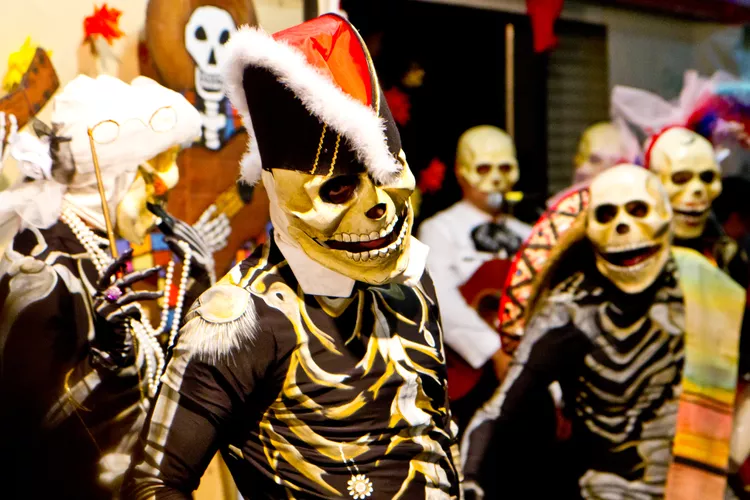Summary of Events in Germany for November
What’s on in Germany in the month of November? Sure, it gets cold, but warm up with a glass of Glüwein as the Christmas markets open, watch parades of children walk by lantern light, and take to the slopes on some of the finest mountains in Europe.
November can be a quiet time to visit Germany, lighter on crowds and less expensive for accommodations and attractions. However, this is also the time that smaller places go into sleep mode with closures and shorter hours.
The weather is also not a highlight at this time of year with plenty of dreary, rainy days and even some early snow. Nevertheless, that doesn’t mean the sun can’t poke through from time to time. Pack for all weather with a heavy coat and scarf at the ready.
Allerheiligen & Allerseelen
While many Westerners welcome the spirits for Halloween on October 31st, in Germany it is November 1 that marks All Saints’ Day (Allerheiligen) and November 2 for All Souls Day (Allerseelen). Visits to the graveyard are common, as well as gifting children Allerheiligenstriezel (braided yeast pastry).
Allerheiligen is an official holiday in some states in the south and west, but celebrations are largely absent in other areas. That, however, is changing with the increasing popularity of Day of the Dead (Día de Muertos). Even in places like Berlin, you might catch some skeletons out dancing.
JazzFest Berlin
Founded in 1964, the Berlin Jazz Fest is one of the world’s premier jazz events. Big bands and large-format ensembles, international jazz stars, and the German Film orchestra Babelsberg perform during the four-day event in storied venues around the city.
DOM Festival in Hamburg
Since the 14th century, Hamburg has celebrated the DOM. This is one of the largest open-air fun fairs in the North of Germany. It takes place three times a year: spring, summer, and winter. This winter edition runs for a month and is fit for the whole family.
Jewish Culture Days
The Jüdische Kulturtage (Jewish Culture Days) are dedicated to Jewish history, art, and tradition. The celebration moves to a different city each year with the Jewish Association arranging for concert series, theater, film, panel discussions, book readings, and exhibitions.
Of particular importance is November 9, the Night of Broken Glass Remembrance Day, referring to the 1938 Kristallnacht events where the Nazis burned down synagogues and Jewish-owned businesses across Germany.
Leonhardifahrt in Bad Tölz
For over 160 years, Leonhardifahrt has been a traditional event in the small Bavarian town of Bad Tölz. Held in honor of Saint Leonhard, this religious procession takes place to the tune of church bells in horse-drawn carriages.
Martinstag
St. Martin’s Day is recognized in many places throughout German-speaking Europe as Martinstag. It celebrates a saint and shares some similarities to Halloween in that it is primarily for children and involves nocturnal activities. School-aged children decorate their own lanterns and parade through the night singing traditional songs to drums.
Tollwood Winter Festival in Munich
There is a summer festival and a winter festival that celebrate social and environmental issues through art. Theater events, music, cabaret, and many live performances contribute to a vibrant atmosphere. The event takes place on the first Sunday of Advent and exults in Christmas tradition with its own Christmas market and program.
Christmas Markets
Christmas markets in Germany are a wonderful part of the holiday tradition and a great way to get into the Christmas spirit. Almost every German city celebrates the season with at least one Christmas market (Berlin is home to 60 different Christmas markets). German Christmas fairs start on the last weekend of November and usually last until Christmas Day.




